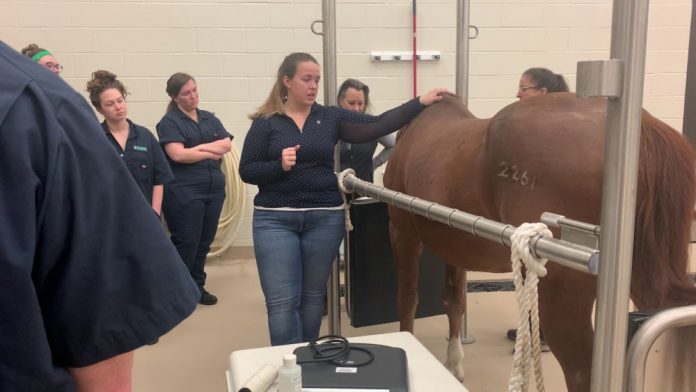When looking to purchase a stallion to breed, a breeding soundness exam should be seriously considered. This can raise awareness of potential problems.
The breeding of horses is a very large industry in the 21st century. Now very much seen as a business, stallions are often purchased as an investment to make money, rather than for any other means. Having a breeding soundness exam carried out on a potential stallion is a wise business decision for any stallion owner.
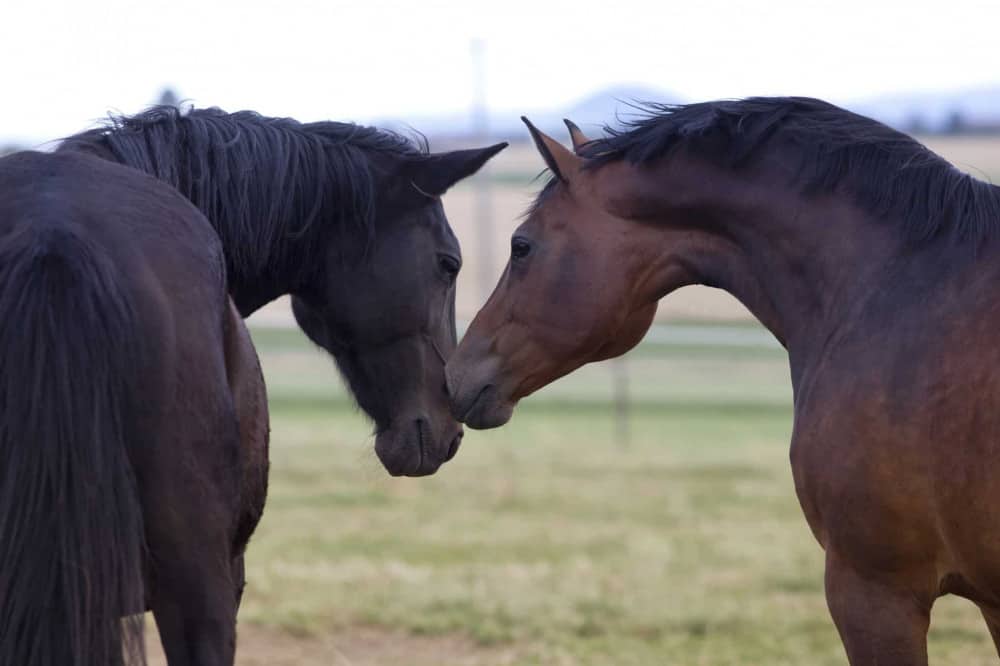
A breeding soundness exam doesn’t guarantee that a stallion is going to be successful at getting mares in foal, nor will it guarantee that the resulting progeny will be a success. It will however provide the owner with information regarding the stallion’s mental and physical capabilities with regards to the production of viable spermatozoa and being able to breed to mares.
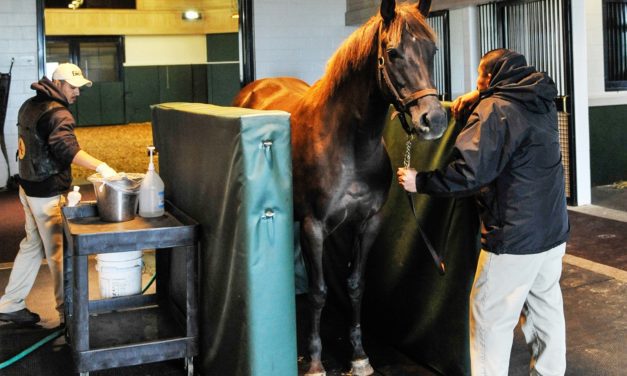
A thorough examination will look at:
- The stallion’s external reproductive organs
- A general physical exam
- Observable libido or sex drive and mating ability
- The presence of any infections that may affect fertility or mares bred
- Semen analysis
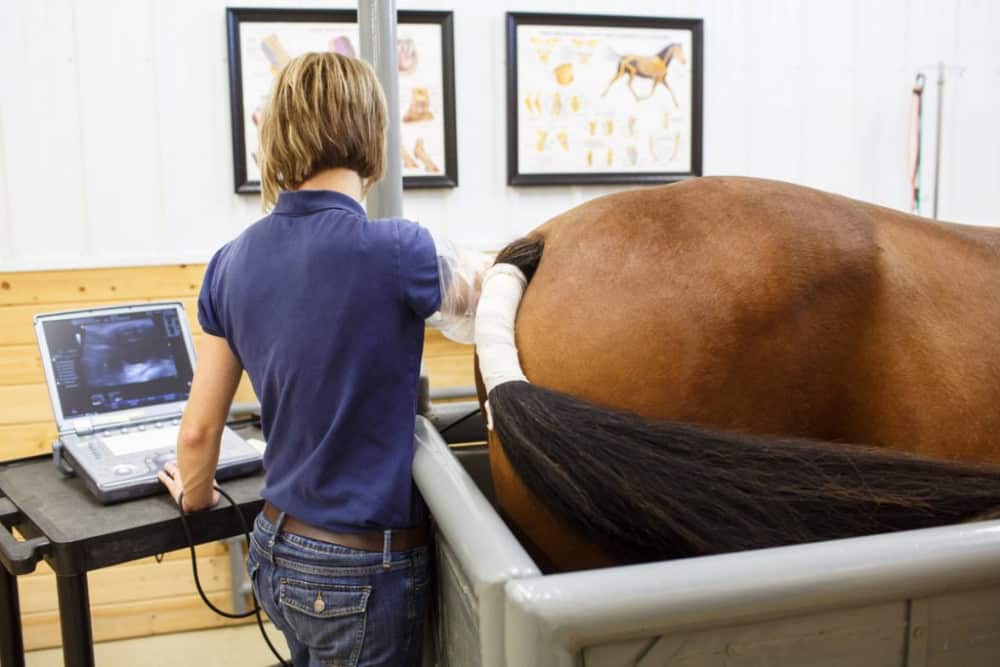
‘Normal’ Doesn’t Always Equate to Fertility
It should be noted that a deviation from what is considered ‘normal’ in one of these areas does not indicate that the stallion won’t be able to get mares in foal. Likewise, not every horse that passes the breeding soundness exam and is believed to be in good physical and mental condition and able to impregnate mares, will actually do that.
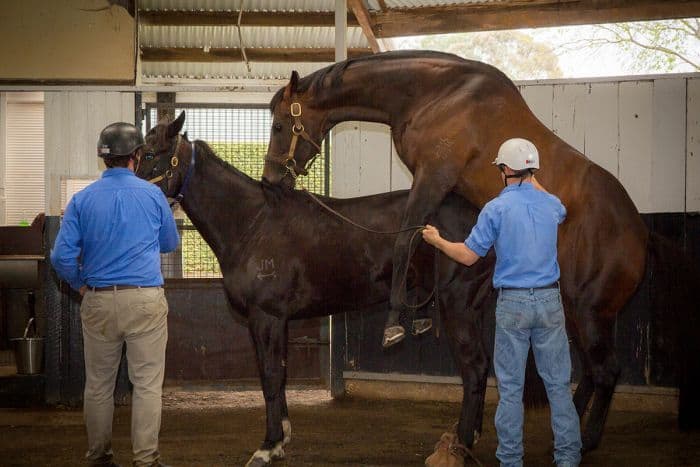
The exam is just a guideline and will help the owner in investigating further should there be any issues or inconsistencies. The true proof will be in the breeding of mares and conception results. An issue in any of these areas can however cause issues with regards to getting mares in foal.
The Stallion’s Physical Health
Some physical issues can prevent a stallion from being able to breed a mare. For example, back pain or pain in the limbs – particularly in the hind limbs – may stop a stallion from mounting a mare, despite having sufficient libido.
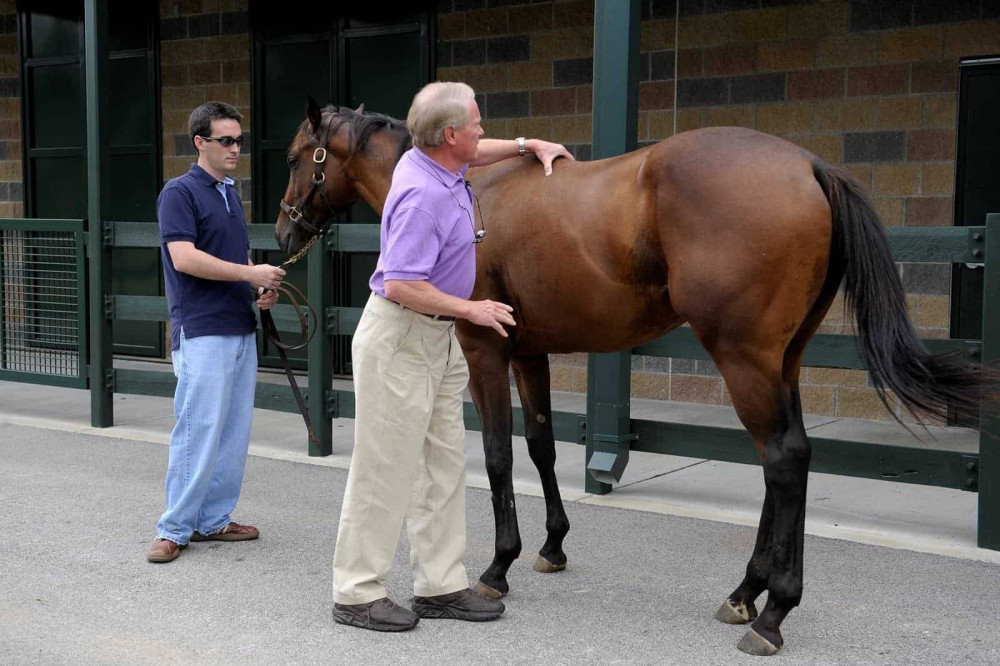
If there is any query on the physical condition of a stallion, the owner or manager should consider if it is possible to improve on this problem. An example of this is poor libido due to the horse being in poor physical condition. Improving nutrition of the horse’s feed and perhaps the amount of feed available to a stallion can improve his overall condition and consequently lead to improved libido.
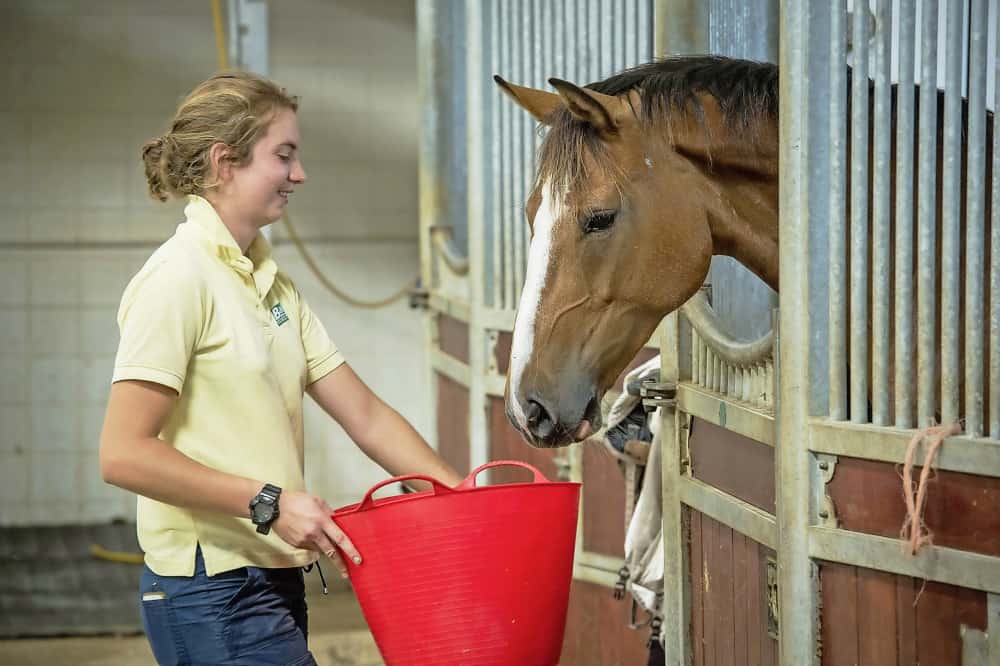
Some issues with regards to physical health will be able to be fixed, and others managed at an acceptable level. An awareness of such issues before utilising the stallion to breed can keep the manager informed and aware of potential problems that may arise in this area in the future.
Analysis of a Stallion’s Semen
Stallions may be collected from during a breeding soundness exam and their semen will be assessed. How many spermatozoa are present in an ejaculate as well as the morphology (shape) and motility (movement pattern) of the sperm will be assessed. These will give an indication of the likelihood of a mare conceiving if being bred to or inseminated from this stallion.

A breeding soundness examination doesn’t classify a horse as fertile or infertile. Rather, it provides information to the owner or manager on the horse’s results with regards to what is considered normal. Such information can be particularly beneficial to being able to manage a stallion effectively and result in mares getting in foal each breeding season.


